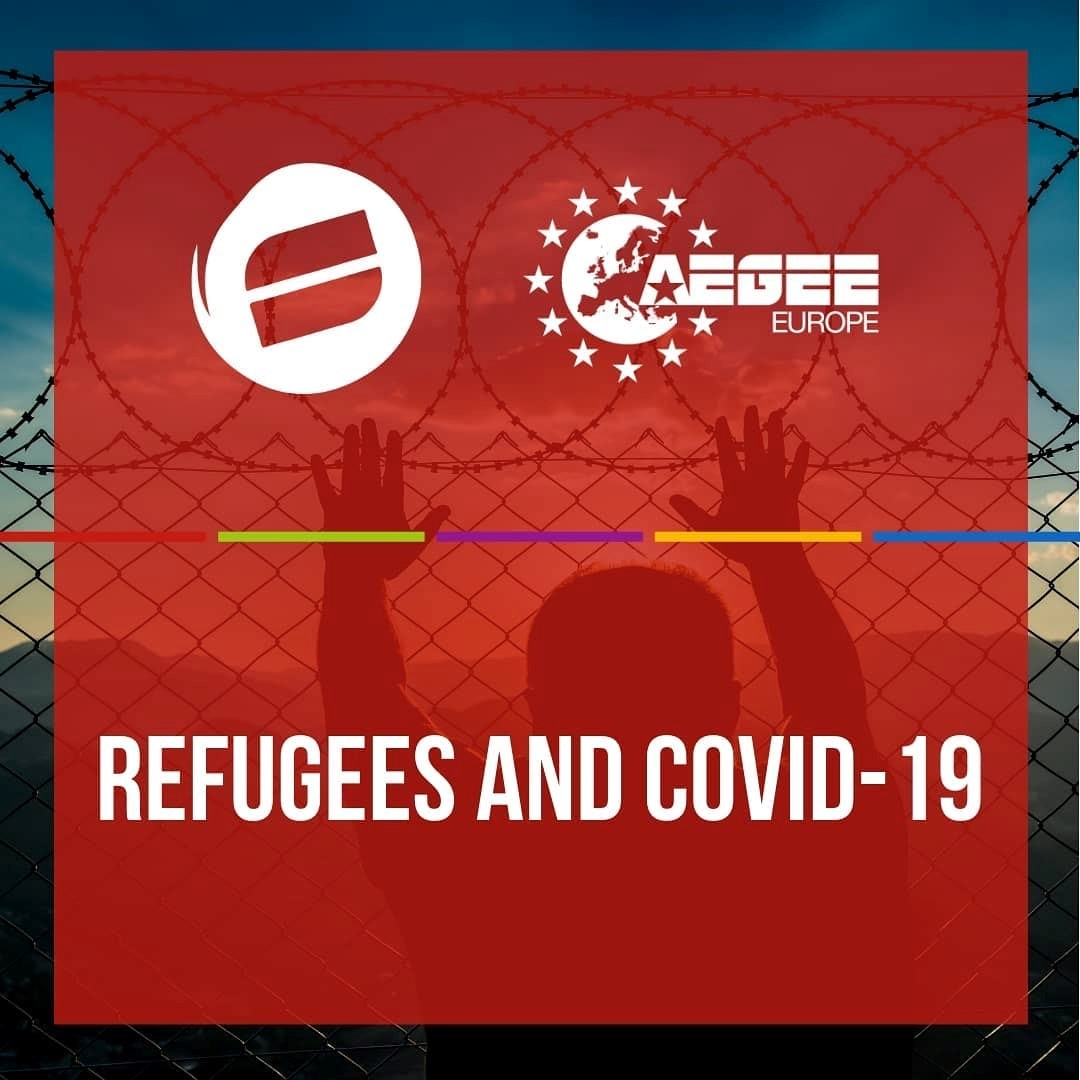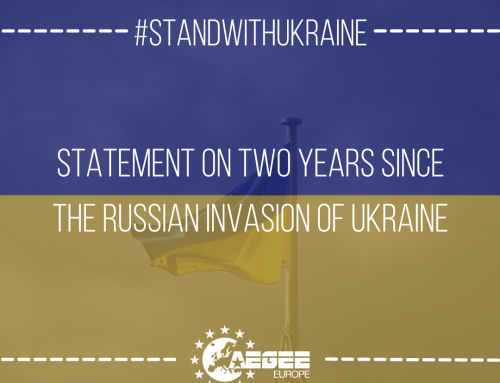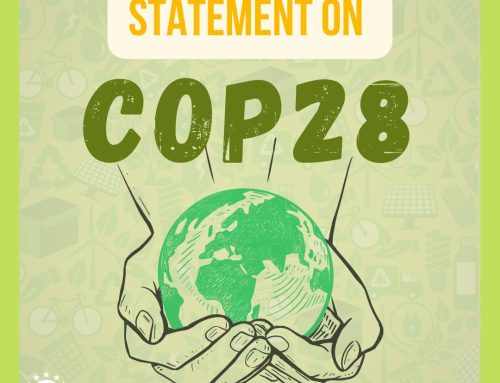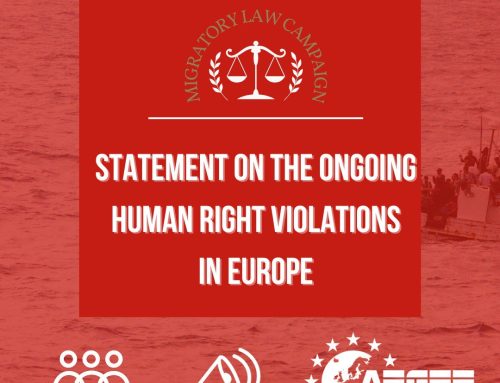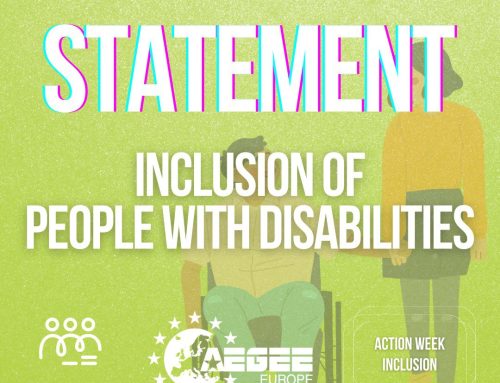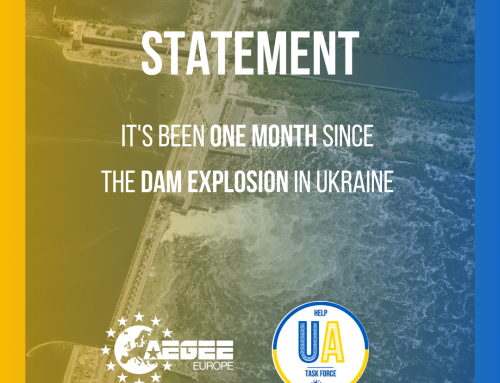In the last weeks, Europe has become the new hotspot of the global COVID-19 pandemic, a public health emergency that has been already recognised as the biggest crisis hitting the continent since World War II. Each of us is being affected by these exceptional circumstances and living in a situation which we would not have even imagined a few weeks ago. Even though the whole European population is suffering from the impact of the pandemic, the most vulnerable social groups are hit the hardest. Among those, the situation of migrants and refugees in Europe is particularly dire.
Refugees and migrants all across Europe, and especially lone children, often have to rely on the work of NGOs and charities for their own survival and safety. But as the lockdown is being implemented across Europe, local volunteers are no longer able to give their help in camps and shelters. Moreover, in most cases it is impossible for migrants and refugees to effectively self-isolate, making their situation not only a matter of human rights, but also of public health. Several organisations have called for local and national governments to step in and provide accommodation and basic food distribution, as well as access to hot water and soap to try to stop the spread of the coronavirus among the migrant community.
Especially worrying is the situation on the Greek islands, those camps are designed for several thousand people but they house about 42,000. In Moria, Europe’s largest informal migrant camp, located on the island of Lesvos, some 20,000 people live in an area designed to host no more than 3,000. In this camp, hundreds of people share the same water source, and most residents spend hours in queues on a daily basis for food and essential supplies. In these conditions, complying with the WHO recommendations regarding personal hygiene and social distancing is completely impossible. The first case of COVID-19 on the island has already been registered on the 11th of March.
The Greek government recently put migrant camps under a two-week lockdown, but this measure is not considered sufficient to prevent the virus from spreading. On Tuesday 24th of March the Home Affairs Commissioner Ylva Johansson asked Greece to move those migrants most at risk if contracting the virus (such as elderly and sick persons) from the overcrowded camps to other areas on the islands, but the Greek government has opposed this measure. On the 23rd of March senior MEP Juan Fernando López Aguilar, Chair of the Committee on Civil Liberties, Justice and Home Affairs called for the “urgent preventive evacuation of the overcrowded camps”.
In this unprecedented situation, also the fundamental rights of migrants are under threat: on the 1st of March, the Greek government decided to suspend the right to claim asylum for one month. The European Commission did not condemn this action and even referred to Greece as the European Aspida, the Greek word for “shield”. In reaction to this, 120 MEPs called on the European Commission to ensure that fundamental rights of migrants at the Greek-Turkish borders are respected: “this [measure] is (…) banning access to all asylum procedures for the people who enter the country irregularly seeking international protection”, says their letter.
Nevertheless, some European states demonstrated remarkable solidarity in these circumstances: on the 30th of Match the Portuguese government has decided to temporarily grant citizenship rights to all migrants and asylum seekers in order to ensure that they will have access to social security and healthcare amid the coronavirus pandemic.
Exceptional times are not a justification for denying to the most vulnerable their fundamental rights, health and dignity. In moments when civil society struggles to operate, it is time for local and national governments to step in and ensure that everyone has access to shelter, food and to the hygienic standards recommended to fight the pandemic. Confronted with a public health emergency that is disrupting the livelihood of everyone in Europe, it is easy to forget about those who need more support. Solidarity and empathy need to be even stronger in difficult times: everyone from simple citizens to the EU institutions have the responsibility to remember the most vulnerable. Today more than ever it is vital to make sure that every person is safe and cared for, not only in Greece but also in the other Member States with regular arrivals of refugees such as Italy, Spain or Cyprus and in all of Europe.
Especially in these challenging times, AEGEE stands for a Europe where fundamental rights are respected and where everyone can find a home, regardless of their origin or legal status.
Therefore AEGEE demands that:
- The European Commission and the Greek government urgently initiate the evacuation of the 42,000 refugees on the Greek islands, and transfer them to suitable accommodation, so as to protect refugees of the highly risky environment in the camps, but also to ensure appropriate security standards to the local population as well as to the humanitarian aid workers.
- The Greek government immediately restores access to a fair asylum procedure as recognised by international and EU law, and the European Commission ensures that this fundamental right, the same way as others, is respected all across the Member States.
- All EU Member States ensure that living conditions of asylum seekers and refugees, especially those living in refugee camps, are adapted to the urgency of the COVID-19 crisis, as a group particularly vulnerable to the pandemic.
Sources:
- https://www.theguardian.com/global-development/2020/mar/18/ngos-raise-alarm-as-coronavirus-strips-support-from-eu-refugees
- https://www.politico.eu/article/only-a-matter-of-time-greek-migrant-camps-brace-for-coronavirus-outbreak/
- https://www.euractiv.com/section/coronavirus/opinion/covid-19-means-confining-ourselves-not-abandoning-refugees/
- https://www.reuters.com/article/us-health-coronavirus-eu-greece-migratio/eu-asks-greece-to-move-migrants-most-at-risk-from-coronavirus-out-of-crowded-camps-idUSKBN21B2Y1
- https://www.politico.eu/article/senior-mep-juan-fernando-lopez-aguilar-calls-for-eu-action-to-stop-coronavirus-spreading-to-greek-migrant-camps/
- https://foreignpolicy.com/2020/03/27/coronavirus-refugee-health-pandemic-unhcr/
- https://gcap.global/news/we-urge-you-to-evacuate-the-refugee-camps-and-hotspots-on-the-greek-islands-immediately-in-order-to-prevent-a-catastrophe-in-the-midst-of-the-covid-19-pandemic/
- Letter of 120 MEPs to European Commission

